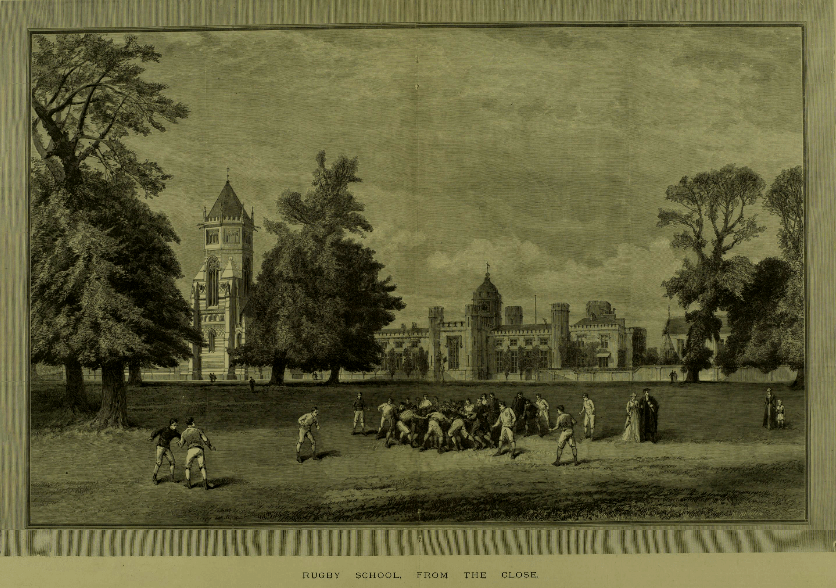The sight of hordes of excited, expectant people checking in to Britain’s hotels this month can mean only one thing – not the lure of a discounted late-summer trip to the seaside – but the start of the eighth Rugby Union World Cup. The beginning of the event on 18th September marked the second time that the UK has hosted the competition. Public interest is reaching fever pitch as we sit glued to our TVs, agonisingly hoping for another Jonny Wilkinson-inspired moment. The victorious nation will crown their achievement by lifting the William Webb Ellis Cup at Twickenham on 31 October. But just who was William Webb Ellis?
With access to millions of pages of digital archival material here at Gale, a part of Cengage Learning, I decided to dig a little deeper into the legend which surrounds the man…
It is an oft-repeated tale: while playing football at Rugby School in 1823, a schoolboy flagrantly disregarded the rules by catching the ball and running with it towards the opposite goal. This innocuous act heralded the modern game of ‘rugby’, enshrining the schoolboy responsible – Webb Ellis – in popular legend as a result.
Yet the authenticity of the story has been hotly disputed; many now see it as a myth. An article in our Financial Times Historical Archive written during the 1995 World Cup was not the first to question the so-called legend, arguing that it first emerged in 1876 – 53 years after the ball-carrying event [1]. A search of our own Gale Artemis: Primary Sources resource would seem to corroborate the Financial Times; the earliest mention of Webb Ellis was in fact in connection with his graduation from the University of Oxford in 1829. [2]

After this, he received only sporadic attention throughout his career in the clergy – his portrait was even printed in an Illustrated London News supplement in 1854 [3]. But there is still no mention of his connection with Rugby.

We have to wait until 1891, almost twenty years after his death, for any reference to Webb Ellis’ sporting association. It was then that The Illustrated London News named him as ‘the father of Rugby football’ [4]. In similar vein, just five months later, a Gloucester Citizen reader called for a ‘lasting memorial’ to Webb Ellis, to mark his ‘far reaching effect upon one of England’s most important pastimes’. [5]


While there does not seem to be any obvious reason behind the emergence of these two articles within five months of each other, it does suggest that the early-1890s was a significant period in entrenching the Webb Ellis legend in the popular imagination.
My brief foray into Gale’s archival resources affirms the impression that the tale surrounding the origins of rugby is nothing more than a myth. Yet there are no signs of the legend abating: tournament organisers World Rugby resolutely stand by it in their context to the event. With this in mind, a part of me can’t help but feel that there is room for further research into the matter: could there in fact be some basis in fact to the story? As millions of us enjoy the trials and tribulations of one of the great events of the sporting calendar this month, spare a thought for Webb Ellis. Whether he was an innocuous Anglican clergyman or great sporting innovator, the case remains a fascinating sideshow to the main event.

